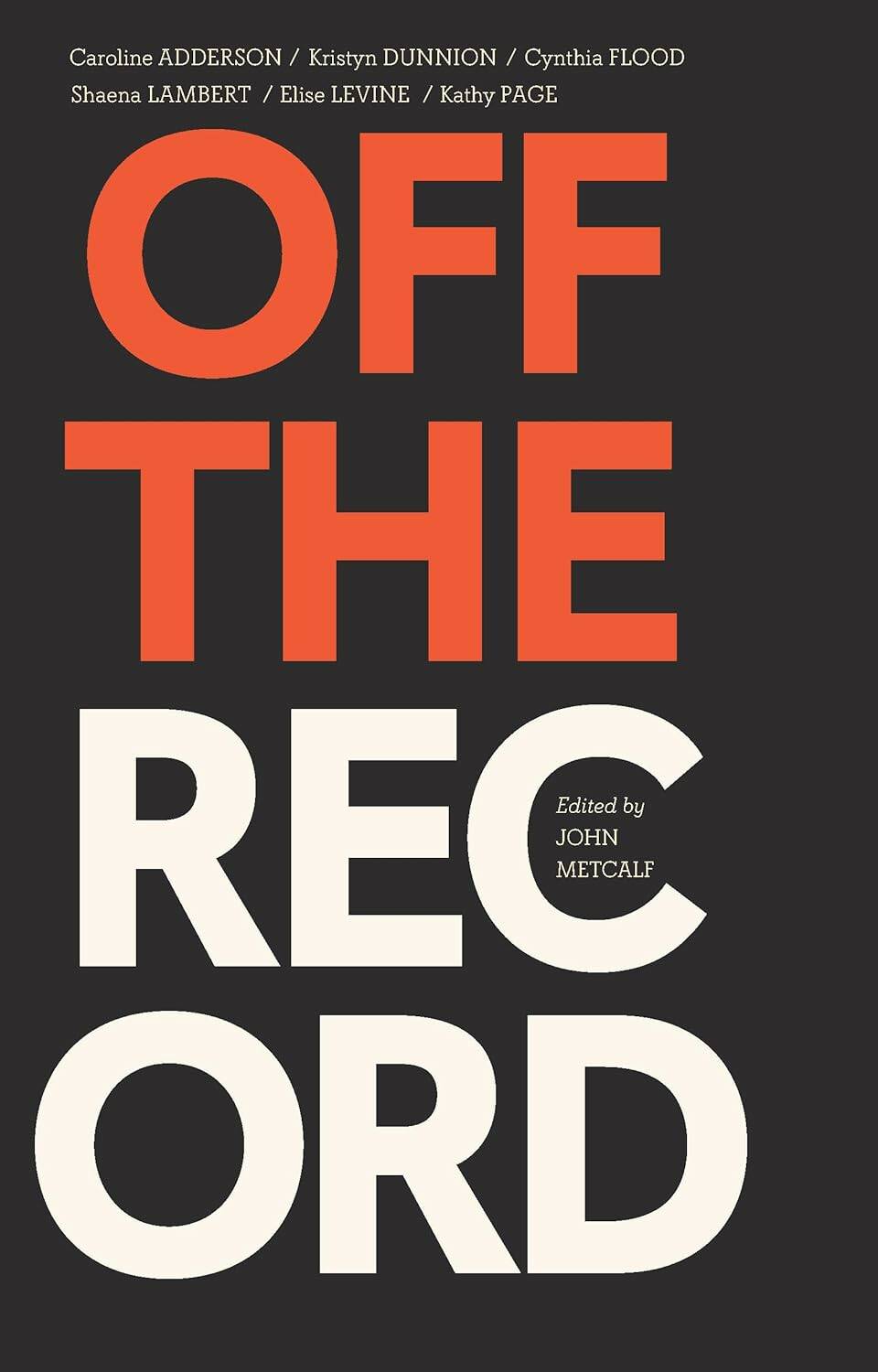Essays, stories offer insight into writing life
Advertisement
Read this article for free:
or
Already have an account? Log in here »
To continue reading, please subscribe:
Monthly Digital Subscription
$0 for the first 4 weeks*
- Enjoy unlimited reading on winnipegfreepress.com
- Read the E-Edition, our digital replica newspaper
- Access News Break, our award-winning app
- Play interactive puzzles
*No charge for 4 weeks then price increases to the regular rate of $19.00 plus GST every four weeks. Offer available to new and qualified returning subscribers only. Cancel any time.
Monthly Digital Subscription
$4.75/week*
- Enjoy unlimited reading on winnipegfreepress.com
- Read the E-Edition, our digital replica newspaper
- Access News Break, our award-winning app
- Play interactive puzzles
*Billed as $19 plus GST every four weeks. Cancel any time.
To continue reading, please subscribe:
Add Free Press access to your Brandon Sun subscription for only an additional
$1 for the first 4 weeks*
*Your next subscription payment will increase by $1.00 and you will be charged $16.99 plus GST for four weeks. After four weeks, your payment will increase to $23.99 plus GST every four weeks.
Read unlimited articles for free today:
or
Already have an account? Log in here »
Hey there, time traveller!
This article was published 30/12/2023 (697 days ago), so information in it may no longer be current.
Ottawa’s John Metcalf, long-time book editor and author of both fiction (The Museum at the End of the World) and provocative non-fiction (Temerity & Gall), has produced an unusual collection of views on writing.
Metcalf asked six writers he knows — all women — to each explain, in a personal essay, why and how they became full-time writers. The result is an entertaining variety of approaches and revelations and how those blend or contrast with their personal lives.
Each essay is accompanied by one of that author’s short stories. The essays are so good that the stories almost seem inferior in comparison.

Off the Record
The six writers are: Caroline Adderson of Vancouver, Kristyn Dunnion of Toronto, Cynthia Flood of Vancouver, Shaena Lambert of Vancouver, Elise Levine of Baltimore (formerly of Toronto) and Kathy Page of Salt Spring Island, B.C. All write frankly about their youth, their education and how their writing lives evolved.
With candour and a keen sense of humour, Adderson tells how her first novel, A History of Forgetting, was negatively received by reviewers, causing her sadness that was redeemed by her having a baby. (The book did go on to be nominated for awards, even “the prestigious Guardian Bad Sex Award.”) She believes that her second novel, Sitting Practice, was successful internationally because “it’s quite funny.” She makes the point that “in Canada, funny books aren’t considered ‘serious,’ which is something I’ve never quite understood.”
Kristyn Dunnion sums up how, for her, publishing “undid decades of parental disappointment… If a wildly enthusiastic octogenarian tries to sell you one of my books, it’s probably my dad. Being a published author compensates for my confusing pansexuality, for refusing to marry or have kids or drive a car or eat meat…” She credits author Marina Endicott with teaching her how to revise.
Cynthia Flood writes succinctly — her essay is the shortest in the book — and even says, “I’ve learned that writing full sentences early on can drag a story into… trouble. Now I start with phrases, fragments, single words.” (Ironically, her story in Off the Record begins with a full sentence.)
Shaena Lambert believes fine literature teachers in high school helped her become a writer. In Grade Twelve there was Miss Barr, who “was tiny and bitter-tongued, and she wore clown-like spots of rouge. If you were caught chewing gum, she rang a cowbell, and then hit you on the knuckles with a ruler. But she loved literature.” Lambert’s serious interest in writing made her feel she had two selves: “A writer self, who recorded, and a high school self, who went to parties.” She “wondered about the ethics of having two selves… I began to think of writing as a secret life.”
Elise Levine comes from Toronto but is currently teaching in the MA writing program at Johns Hopkins University in Baltimore. In her essay, she offers statements such as “If I extinct my external self, muffle how I present to the world, I can defy that world’s unjust pressures. And turn inward toward an expansive interiority.” Much of her essay is devoted to her nasty parents.
The longest and most accessible essay comes from Kathy Page, who was born in England and has experienced life in many places, including a Nottingham prison, where she was a writer-in-residence.
That one-year stint she uses as an example of writers being willing to do anything to stay afloat. Now in B.C., Page fondly remembers her first baby and “her very involved, nappy-changing [husband] who also shared the housework and encouraged me to put aside time to write.” She says “Should it be a surprise that being loved, loving, and happy really helped me as a writer?”
John Metcalf deserves a round of applause for bringing together such an excellent variety of voices on the subject of being a writer.
Dave Williamson is a Winnipeg author who has taught creative writing at the University of Manitoba, Red River College and McNally Robinson Booksellers.

